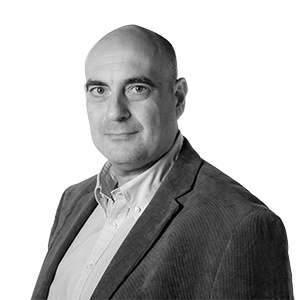

1. Cervera, La Segarra. Night of May 20, 1992. Roser is watching the European Cup final on television. Koeman scores the most important goal in Barça's history, and in the euphoria of the moment, the woman jumps, falls to the ground, and breaks her ankle. Despite the pain, Roser and Julià decide to celebrate that victory with gusto, and just nine months later, their son is born. Marc Márquez i Alentà is the fruit of joy and a fall. These are two of the characteristics that, over time, we have seen most often in the prodigious career of the motorcyclist. Marc is a compulsive smiler, an optimist by nature, a human being who, with this attitude, you can already guess that he will always achieve his goals. It's also true that in the last six years he has fallen off his motorcycle a hundred times and has suffered all kinds of injuries. The most serious, the crash in Jerez in the year of the pandemic. After being left like a human wreck, anyone else would have parked their bike and walked away.
2. Motegi, Japan. Midday on September 28, 2025. Marc Márquez, at 32 years old, is crowned world motorcycle champion for the ninth time. He already has seven MotoGP titles, and unlike previous occasions, when he held a grand celebration next to the track, this time he celebrated with a flood of tears. After dismounting the Ducati and taking off his helmet, Márquez couldn't stop crying. From grief, from liberation, from being "at peace with oneself," as he said on Catalunya Ràdio. All of us who got up early to watch him were left with goosebumps. His emotion was genuine, gushing, not because MM93 had a perfect season (he won 25 of the 34 races now taking place between Saturday and Sunday), not because he was crowned champion with Ducati on Honda soil, but because only he knows where it comes from. Of unfathomable suffering, of the daily effort to avoid throwing his hat in the fire, of the years of double vision that prevented him not only from driving but also from living a normal life. And he was too young to live with so many ailments forever. His is a story of overcoming challenges. Audiovisual platforms will be needed to make a good documentary, the definitive one, that captures—heaven and hell—all the facets of this human and sporting feat. Spectacle and risk in equal measure. The public laughter and the maximum demand on the paddock. Foreshadowing, knees on the ground, falling and being reborn. And a chapter for the rivalry with Valentino Rossi, whom he will surely end up surpassing as the greatest driver in history.
3. Marc Márquez is world champion again. Like Iris Tió in synchronized swimming. Or Toni Bou, about to win his 40th World Trial Championship. Àlex Palou is a four-time IndyCar champion and is better known in the United States than in Sant Antoni de Vilamajor. Kilian Jornet—up the crest, down the mountain—wins whenever he wants. Aitana Bonmatí is the best soccer player on the planet for the third consecutive year, and Lamine Yamal will soon be the best, officially, when the jury members cast their objective votes. We have other Catalan world champions, in other disciplines, but for this column and for the idea I want to lead to, the inventory would be too long. If I had a voice in the offices of the National Pact for the Language, tomorrow I would start thinking about an advertising campaign featuring all these sports idols, who have one thing in common: they speak Catalan. I'll give away the slogan: "The language of champions." Let's see if watching the ad boosts our self-esteem a little, we entrust the enthusiasm for Catalan to those who don't yet feel the need to speak it, we remind everyone that it's not a language for losers, and—what the hell—we stop crying together.
